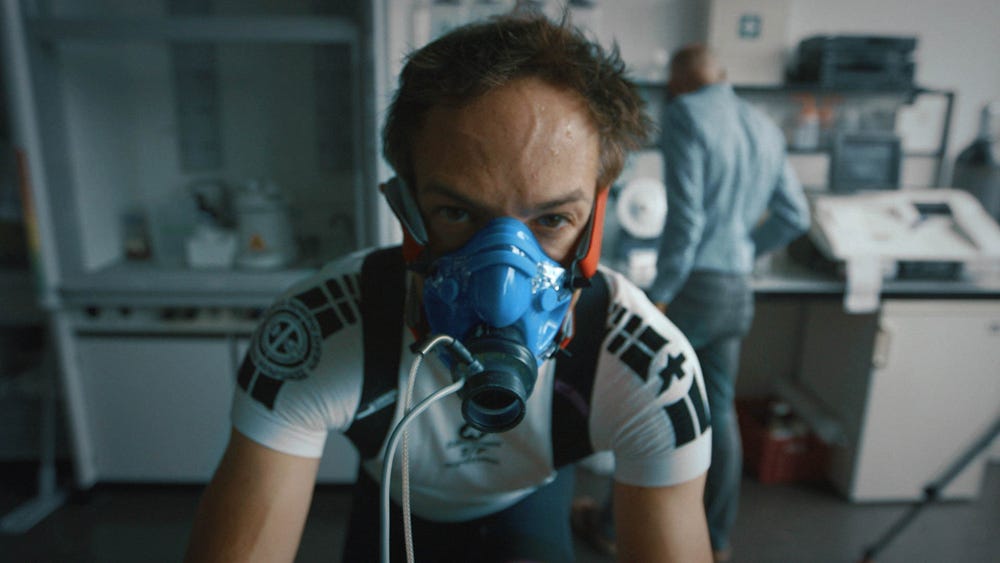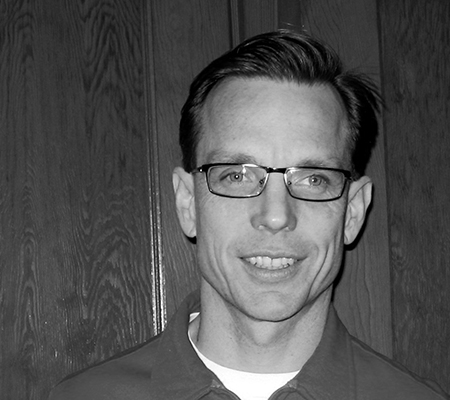Icarus (Netflix) offers a cautionary tale about the high stakes of sports and another grand experiment: our democratic republic.
By Randal Doane
Originally posted on Medium
September 5th, 2017

Filmmaker Bryan Fogel casts himself as an amateur cyclist and steroid-popping lab rat in the new Netflix documentary (Photo image: Sundance).
If you love cycling, amateur sports, or democracy, check out Icarus (2017), a Netflix documentary with a cumulative rottentomatoes.com score as high as Citizen Kane’s.
Here’s the hook: filmmaker and amateur cyclist Bryan Fogel rides the Haute Route, in the French Alps, in 2013. In Fogel’s estimation, the Haute Route includes the seven most torturous stages of the Tour de France in seven days, with 1000 miles and over 50,000 feet of climbing. Yes, such a thing exists. Fogel races, but with an ulterior, cinematic motive: “To prove the system in place to test athletes [for drugs] was bullshit.” He finishes in 14th place, and concludes, “There are about 10 guys it seems that are on just another level.”
For Haute 2014, Fogel decides to adopt a Lance-Armstrong-inspired doping regimen, and enlists Grigory Rodchenkov, the head of Russia’s anti-doping program, to administer via Skype and, most importantly, to ensure any drug test comes up negative. Fogel rides well, but finishes 27th, due to technical snafus. (Lesson for cyclists: stick with analog derailleurs.)
In the meantime, things get weird. Rodchenkov is the subject of a German documentary on doping transgressions, which leads the Word Anti-Doping Agency (WADA) in November 2015 to implicate Russian state authorities and suspend Russia from the 2016 Summer Olympic Games. At the press conference, WADA director Dick Pound wonders aloud, “It’s hard to imagine what the Russian state interest in athletes’ urine would be.”
Like President Trump, President Vladimir Putin likes winners. In Icarus, we learn that Rodchenkov reported to sports minister Yury Nagornykh, who reported to prime minister Vitaly Mutko, who reported directly to Putin. We also learn that WADA had impressive safeguards in place in order to ensure the integrity of international competition, which the Russians, and Rodchenkov in particular, systematically undermined during the Sochi games.
The geo-political implications of Icarus are even more disturbing. As the New York Times reported recently, 21 states were targeted by Russian hackers, but confirmation of the results of the Russian program may not be forthcoming. Michael Daniel, formerly the cybersecurity coordinator in the Obama White House, noted, “If you really want to know what happened, you’d have to do a lot of forensics, a lot of research and investigation, and you may not find out even then”(1). The Russian hacking of WADA was an infinitely more complex operation than tampering with voter registration or election databases. For the Olympics and other international competitions, Putin and co. had the will and found the way. It’s almost certain the ways they burrowed into the US election in 2016 will remain open in 2018.
Notes
1.
Nicole Perlroth, Michael Wines and Matthew Rosenberg. “Russian
Election Hacking Efforts, Wider Than Previously Known, Draw Little
Scrutiny,” New York Times, September 1, 2017.


